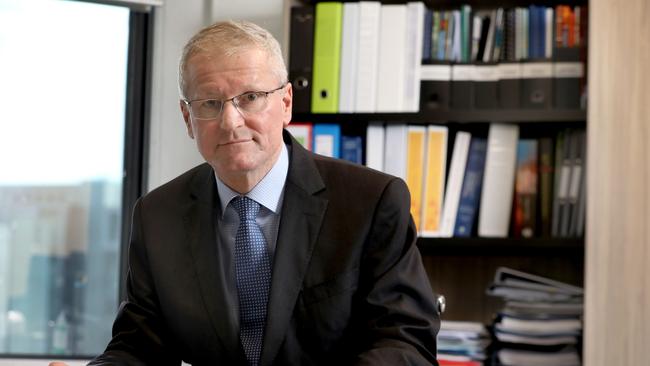Four South Australians dying from suicide every week
SA’s latest suicide rate rise is “confronting and sobering” and is yet to take into account the impact of COVID-19, experts warn.
SA News
Don't miss out on the headlines from SA News. Followed categories will be added to My News.
Four South Australians died from suicide every week in 2019, new Australian Bureau of Statistics data shows.
SA and national mental health experts say the “confronting and sobering” increase in suicide deaths, which are yet to take into account the impact of COVID-19, requires a significant reconsideration of current prevention policies and investment. The ABS report released yesterday shows almost 40 more South Australians died from suicide in 2019 than in 2018 and 79 per cent of them were men.
While suicide ranked the 16th most common cause of death in SA in 2019, it was the leading cause of death among those aged 30-59. “These are confronting and sobering statistics that must be concerning to all South Australians,” said UniSA Mental Health and Suicide Prevention Research Group’s Nicholas Procter.
South Australia’s age-standardised suicide rate went from 12 deaths per 100,000 people in 2018 to 13.9 in 2019, despite $3.6 million in state government funding for suicide prevention since 2018/19.
Professor Procter said governments must rethink current measures to ensure adequate investment in frontline services. “Investment is needed in addressing the drivers in suicidal states, specifically, support following history of self-harm, financial distress, insecure housing, childhood trauma and adversity, discrimination and use of alcohol and other drugs.”

SA’s Chief Psychiatrist Dr John Brayley said the new data was “sad and concerning” and that “every life lost to suicide is one too many”.
But, Dr Brayley said suicide prevention strategies could work. “These new statistics reinforce the need for us to pursue and strengthen suicide prevention work, both in the community … and in clinical services,” he said.
Everymind acting director Associate Professor Carmel Loughland says that the latest figures should not sit well with anyone.
“We need to empower and build capacity across our community to ensure we have an accessible and responsive service systems, and better supports for people who have been impacted,” she said.


